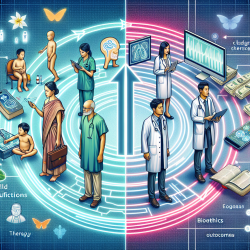The transition from special education to adulthood is a crucial period for youth with autism. A recent longitudinal cohort study, "General health status of youth with autism with and without intellectual disabilities transitioning from special education, and its relationship to personal and family circumstances," provides valuable insights that can help practitioners enhance their skills and support these youth more effectively.
The study followed a nationally representative sample of youth with autism over ten years, focusing on their general health status and its associations with personal and family circumstances. Key findings include:
- Only 69.6% of youth with autism reported excellent/very good health by the end of the study period, with even lower percentages for those with co-occurring intellectual disabilities.
- Older age and lower household income were associated with worse health outcomes.
- Sex, ethnicity/race, and parental relationship status did not significantly impact health status.
These findings underscore the importance of considering socioeconomic factors and co-occurring intellectual disabilities in transitional planning. Practitioners should focus on creating comprehensive support plans that address not only the educational but also the health needs of these youth.
Practical Tips for Practitioners
Based on the study's outcomes, here are some actionable steps for practitioners:
- Holistic Transitional Planning: Develop plans that consider both educational and health needs, especially for those with co-occurring intellectual disabilities.
- Socioeconomic Support: Advocate for resources and support systems that can alleviate the impact of lower household income on health outcomes.
- Continuous Monitoring: Regularly assess the general health status of youth with autism to make timely interventions.
- Family Engagement: Work closely with families to ensure they are well-informed and involved in the transitional planning process.
Encouraging further research in this area is also vital. The study highlights a significant gap in longitudinal research on the general health status of youth with autism, especially those with intellectual disabilities. More studies are needed to replicate these findings and explore additional factors that may influence health outcomes during this critical transition period.
To read the original research paper, please follow this link: General health status of youth with autism with and without intellectual disabilities transitioning from special education, and its relationship to personal and family circumstances: longitudinal cohort study.










